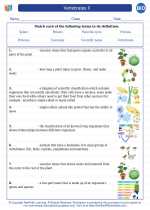Scientific Method
The scientific method is a systematic, logical approach to problem-solving and investigating the natural world. It involves a series of steps that scientists use to form and test hypotheses, make observations, and draw conclusions.
Steps of the Scientific Method
- Observation: The first step is to make an observation about a natural phenomenon or ask a question about it.
- Hypothesis: Based on the observation, a hypothesis is formulated. A hypothesis is a testable explanation for the observed phenomenon.
- Prediction: From the hypothesis, specific predictions are made about what will happen under certain conditions.
- Experimentation: Controlled experiments are designed and conducted to test the predictions and gather data.
- Analysis: The data collected from the experiments are analyzed to determine if they support or refute the hypothesis.
- Conclusion: Based on the analysis, a conclusion is drawn about the hypothesis. If the data support the hypothesis, it may be accepted; if not, the hypothesis is rejected or modified.
- Communicate Results: The findings are communicated through scientific publications, presentations, or other means to allow for peer review and further research.
Key Concepts
- Empirical Evidence: The scientific method relies on empirical evidence, which is obtained through direct observation or experimentation.
- Replication: Experiments should be repeatable by other scientists to verify the results and ensure the reliability of the findings.
- Falsifiability: Hypotheses should be testable and potentially falsifiable, meaning they can be proven false through experimentation.
- Theory Formation: Over time, hypotheses that have been repeatedly validated may become theories, providing a broader framework for understanding natural phenomena.
Applications
The scientific method is used in various fields, including biology, chemistry, physics, and environmental science. It helps researchers and scientists to systematically investigate and understand the natural world, leading to advancements in technology, medicine, and our overall knowledge of the universe.
Study Tips
To master the scientific method, it's essential to practice applying it to different scenarios. Consider conducting simple experiments, recording observations, and formulating hypotheses. Additionally, familiarize yourself with famous scientific discoveries and how they were made using the scientific method. Understanding the steps and key concepts will help you approach scientific problems with a critical and systematic mindset.
[Scientific Method] Related Worksheets and Study Guides:
.◂Biology Worksheets and Study Guides High School. Vertebrates II
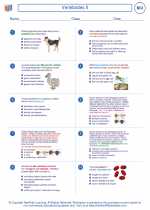
 Worksheet/Answer key
Worksheet/Answer key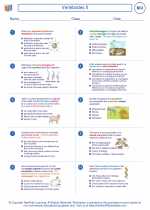
 Worksheet/Answer key
Worksheet/Answer key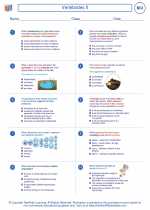
 Vocabulary/Answer key
Vocabulary/Answer key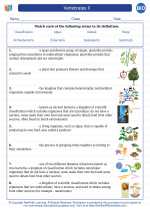
 Vocabulary/Answer key
Vocabulary/Answer key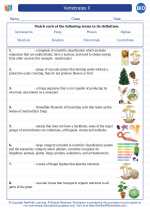
 Vocabulary/Answer key
Vocabulary/Answer key